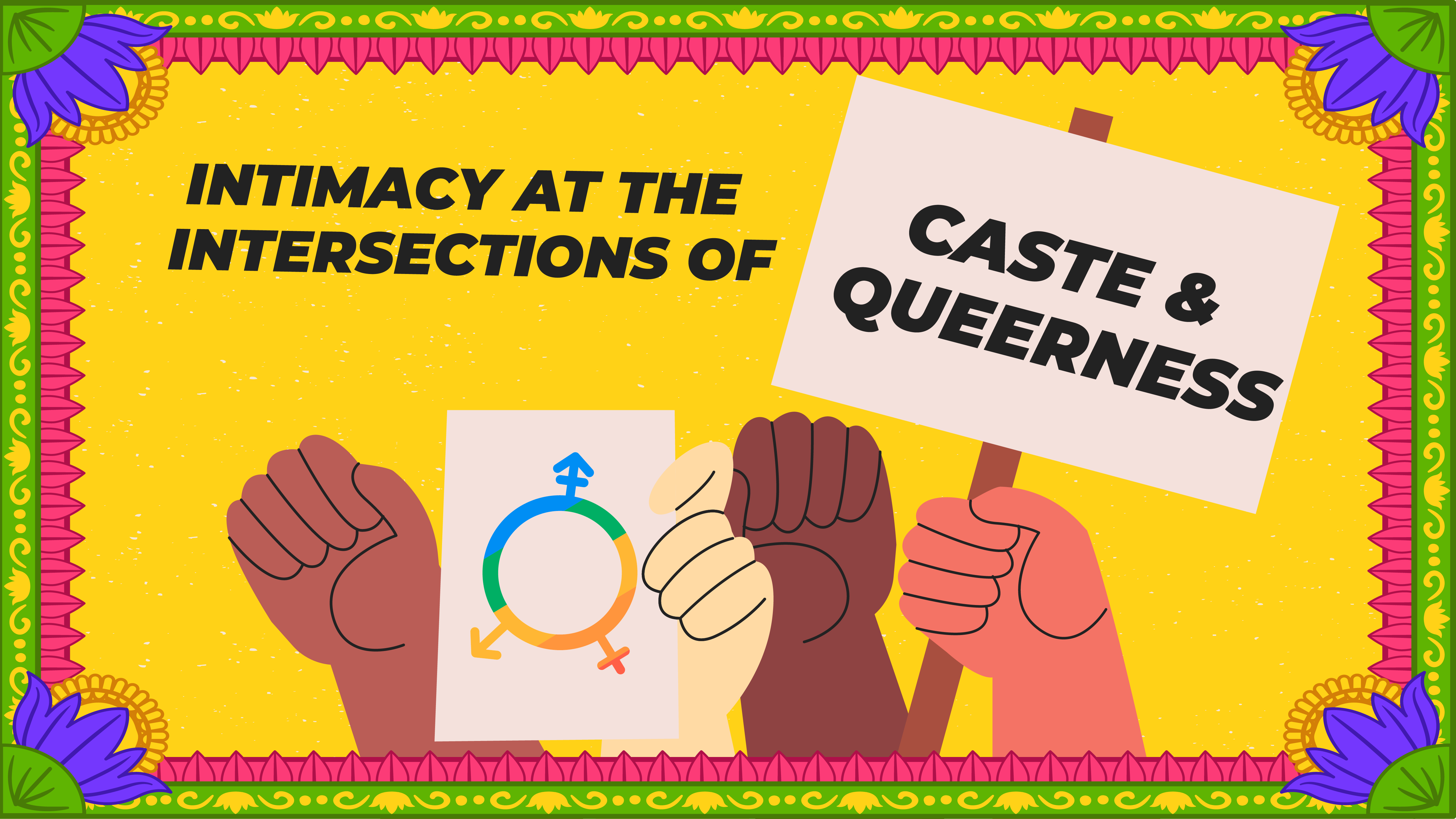There is a unique predicament that Indian Queer folks experience. Indian Queer folks need to look at queerness at the intersections of caste. This intersection of identities creates a complex and multifaceted experience for queer folx in India and highlights the importance of radical self-love and anti-oppressive relationships.
Caste, a deeply ingrained and hierarchical system of social stratification in India, has far-reaching impacts on all aspects of a person’s life, including their opportunities for education, employment, and relationships. For queer folks who also belong to marginalized castes, discrimination and prejudice can be even more pronounced, creating additional barriers to expressing and experiencing love and intimacy.
Lack of representation of these intersections in mainstream media and pop culture also contributes to the invisibility and marginalization of Dalit Bahujan and Adivasi (DBA) Queer folks. This can make it difficult for them to find representation, community, and support, leading to feelings of isolation and loneliness.
There is also a growing movement of radical self-love and anti-oppressive relationships in the queer community. Radical self-love involves rejecting societal expectations and norms. This can be particularly important for people who belong to marginalized communities, as it allows them to reclaim their identities and reject oppressive societal narratives bent on erasing their existence.
Anti-oppressive relationships prioritize mutual respect, consent, and autonomy, and reject traditional heteronormative norms and power dynamics. By rejecting these norms and creating new, more inclusive and empowering relationships, the queer community can work towards a more just and equitable society.
One aspect of this movement is the growing popularity of ENM (Ethical Non-Monogamous) relationships in the queer community. ENM relationships often prioritize open communication, honesty, and consent, and can provide a more equitable and fulfilling experience for all partners involved. By rejecting traditional notions of ownership and possession in relationships, ENM relationships can help to challenge oppressive power dynamics constructed within the binary cisheteronormative paradigm.
The intersections of queerness and caste highlight the importance of radical self-love and anti-oppressive relationships. It is only through collective recognition of the intersections of these identities that one can progress farther. We cannot reimagine an anti-oppressive future without looking towards DBA queer folks as leaders within our spaces.
In a time when the lines between work and home are being blurred due to work-from-home or remote working, it is prudent to be knowledgeable about how relationship structures are becoming fluid.
As allies, how can organisations build systems to support queer employees in their relationships. Firstly, it is important to investigate how policies are made inclusive, do they reflect the spectrum of human relationships? Do they consider multiple partners, surrogacies, same gender unions? If we are striving to be allies, policies should accommodate the myriad ways queer folks navigate love and relationships. For example, policies for parental leave should account for queer partnerships, surrogacies, and single parent household.
Let us look at the example of polyamory, if an employee is polyamorous, it may become difficult to navigate sick leave, family leave, office offsites, and water-cooler talks. If this employee expends mental energy hiding their relationship status it would affect their work and productivity. An open work culture along with accepting colleagues can be the difference between this employee performing their best and staying long-term versus being pushed out, or “quiet quitting.”
When we center normative relationships, non-normative relationships, and the people in it end up becoming whispers in the workplace. The vastness of human experience when it comes to falling in love cannot be captured in a single try. Therefore, policies, infrastructure and culture must evolve and change according to the fluidity of the future. This nuanced work can be tough, but there is always support available for determined allies.
 Cart is empty
Cart is empty 

